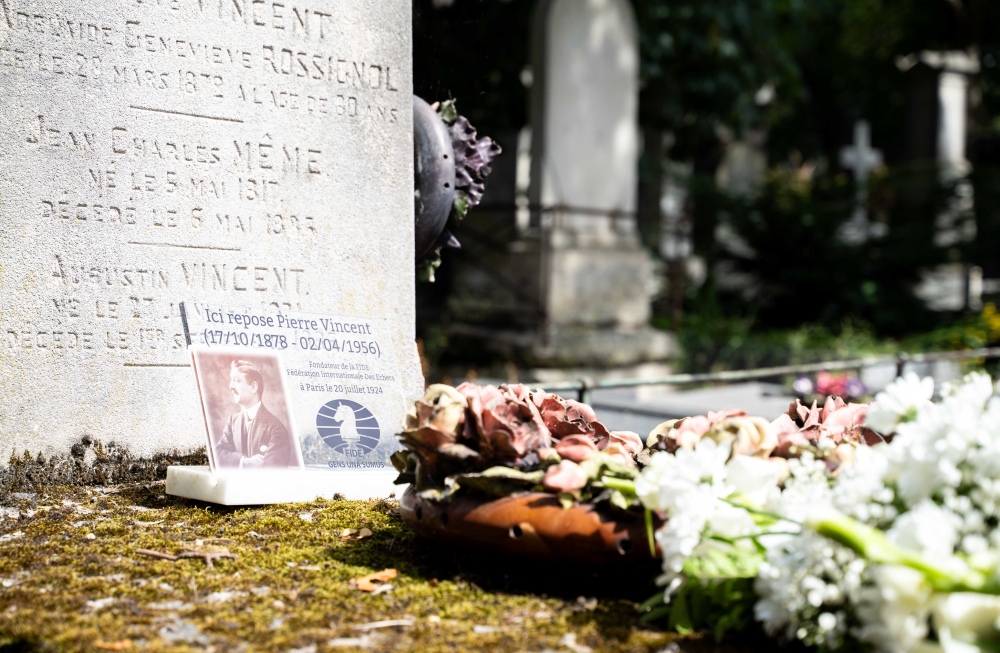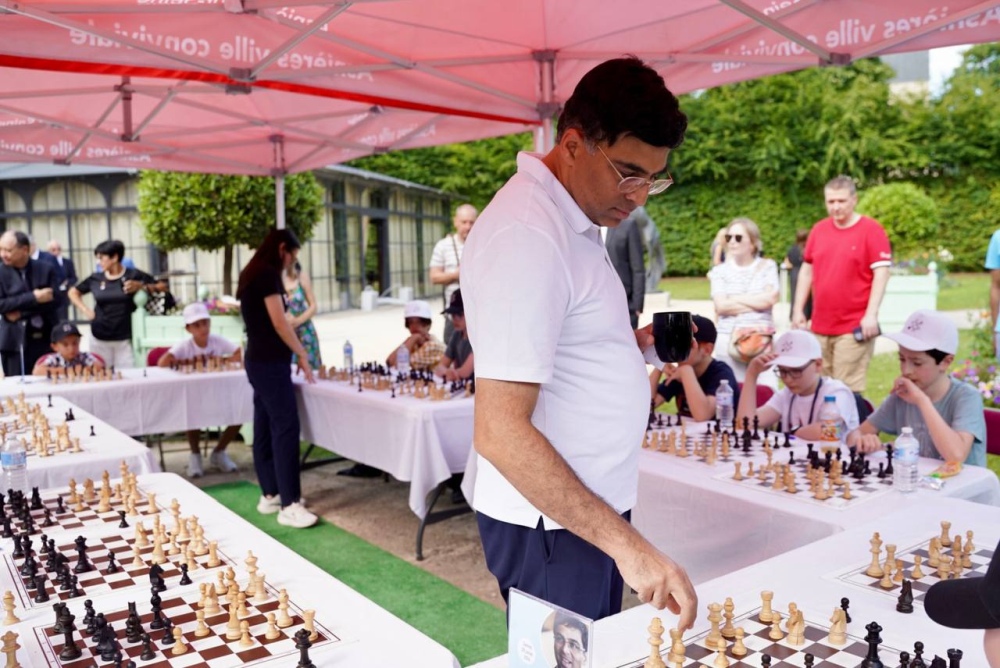On July 20, 1924, the last day of the Summer Olympics in Paris, 15 delegates from all over the world signed the proclamation act of what was originally known as “Fédération Internationale des Échecs” or “FIE” (shortly after the acronym was changed to “FIDE”). Symbolically, precisely a century later, the representatives of the same countries met in the Town Hall of the IX Arrondissement, Paris, where the original act was signed, and outlined FIDE’s goals for the next 100 years.
As we celebrate the first centenary of FIDE and its achievements, we – the below signed – also want to put forward the vision for the next 100 years of the International Chess Federation.
Our commitment is to advance chess, embracing its educational, cultural, intellectual and lifestyle benefits, ensuring it stands as a beacon of excellence, inclusivity and unity among the people of the world.
To this end, we want to put forward Ten Goals For The Next 100 Years Of The International Chess Federation.
1. Global Expansion and Accessibility
Chess should continue in its stride to reach every part of the globe – every major city, town, village, house or hut, every distant and remote place, including space. While chess is played by millions around the world, there are vast opportunities to increase the interest in and popularity of the game. In doing so, the chess world must always be guided by the principles of inclusivity, making sure everyone has enough opportunities and resources to learn and enjoy chess.
2. Digital Revolution
Chess should leverage technologies and the online revolution to make it more accessible online and more appealing to the coming generations, by emphasizing its practical value in real life. This includes more and better organized online tournaments, virtual coaching, interactive learning tools in as many world languages as possible, as well as creating online communities of chess players.
3. Educational Integration
As a useful tool for developing skills such as critical thinking and problem-solving, chess should seek to broaden and deepen its ties with educational institutions. Many countries have introduced chess in their educational system, but there are more which need to follow. For those countries where chess is taught as a subject, teaching materials and styles need to be further developed and integrated with the best scientific practices in education. Youth camps and scholastic tournaments and educational programs with Grandmasters should also be included.
4. Cultural Promotion
Chess has a rich history which has also led to the development of a distinguished subculture, attracting people from all walks of life and of all ages. The life, experiences and identities that are created around the chessboard serve as a cultural melting pot and a source for ideas and identities. As such, the cultural promotion of chess should be developed further and the game should seek to connect more with arts and sciences.
5. Innovation and Technology
Chess was the first sport and the ultimate testing field where human and machine intelligence squared off. The rapid progress of development and use of Artificial Intelligence in work and daily life is already having a large impact on the world and is likely to produce profound changes in the way we live our lives. Chess has already experienced this through the rise of the chess engines but AI brings new possibilities which the chess world should explore and seek to adapt to its needs – from AI-driven platforms providing personalized coaching and insights to players, to interactive learning, virtual-reality experiences, community building, to anti-cheating detection.
6. Inclusivity and Diversity
While the chess world has largely been in step with championing gender and identity equality and respect, this topic needs to always be at the forefront of any agenda or policy in the chess world. From getting more women to play chess and stay in the game professionally, to events for people with disabilities – chess must be a game for all, regardless of their age, abilities and background.
7. Environmental Responsibility
Chess events and chess players should contribute towards being responsible for the environment by promoting and practising environmentally friendly practices and values. FIDE activities – including tournaments and events – should be environmentally friendly, seek to highlight the importance of protecting the environment and aim to lower the carbon footprint.
8. Global Awareness
Use the popularity of chess and interest in the game to raise awareness of important global social and environmental issues and challenges such as climate change and encourage the chess community to take an active role in addressing these issues.
9. Strengthening of Governance and Ethics
As a growing international organization, FIDE should always seek to uphold the highest standards of governance, transparency and ethical behavior. This includes developing and maintaining a high standard of anti-cheating measures but also includes actively advocating ethical values and behavior.
10. Social Impact
In recent years, FIDE has spearheaded social initiatives aimed at helping and empowering those in need – from the Chess for Refugees program to Chess in Prison and projects focusing on mental health, among others. FIDE and the chess world should seek to actively develop, support and engage in similar projects which benefit society, at any level. The chess world should use its voice and reach to drive change for the better in society.
Commitment to the Future
As we celebrate the past, we look towards the future with hope and faith that chess can be a force for good in the world and a source of inspiration for people across the globe.
FIDE President
Arkady Dvorkovich
President of the Argentina Chess Federation
Mario Petrucci
President of the Royal Belgian Chess Federation
Laurent Wery
President of the Chess Federation of Canada
Vlado Drkulec
Delegate and International Director of English Chess Federation
Malcolm Pein
Delegate of the Royal Dutch Chess Federation
Vincent Geeraets
Representative of the Finnish Chess Federation
Jouni Lehtivaara
President of the French Chess Federation
Eloi Relange
President of the Hungarian Chess Federation
Zoltan Polyanszky-Tamasi
President of the Italian Chess Federation
Luigi Maggi
President of the Polish Chess Federation
Radoslaw Jedynak
President of the Romanian Chess Federation
Vlad Ardeleanu
Grandmaster, representative of Chess Federation of Slovakia, on behalf of former Chess Federation of Czechoslovakia
Lubomir Ftacnik
FIDE Honorary member, representative of Chess Federation of Slovenia on behalf of former Chess Federation of Yugoslavia
Boris Kutin
President of the Spanish Chess Federation
Fransisco Javier Ochoa de Echagüen
President of the Swiss Chess Federation
André Voegtlin




